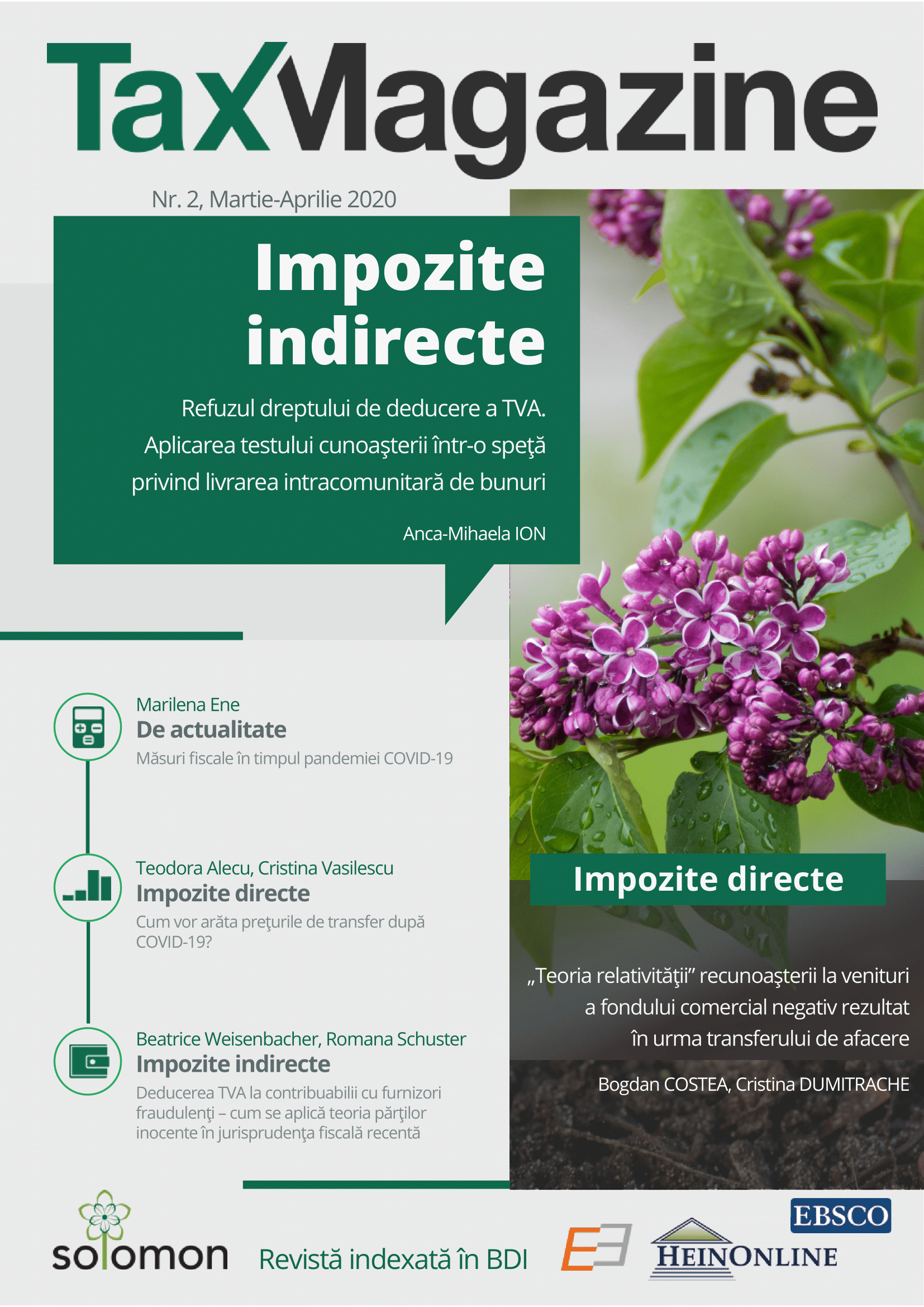Deducerea TVA la contribuabilii cu furnizori fraudulenți – cum se aplică teoria părților inocente în jurisprudența fiscală recentă
VAT deduction for taxpayers with fraudulent providers – how has the theory of innocent parties been Applied in recent tax jurisprudence?
Author(s): Beatrice Weisenbacher, Romana SchusterSubject(s): Law on Economics
Published by: Editura Solomon
Keywords: VAT deduction; taxpayers with fraudulent providers; theory of innocent parties;
Summary/Abstract: In practice, we encounter many disputes which, at first glance, seem to be alike, but have received different solutions from the courts. When we take a closer look, we notice that, even though they seem identical, in substance they are very different. To demonstrate this, we bring into discussion two decisions issued by the ICCJ, which involved cases that were similar, but received different outcomes. Both concerned companies that purchased goods from different suppliers. These companies recorded their purchases in the accounting and declared them to the fiscal authorities. However, the supplying companies did not record these transactions in their accounting and, also, did not fill in the supplies in the mandatory tax returns. As a consequence, the right to deduct the VAT for the companies that are subject of our discussion was refused by the tax authorities. In both cases the defenses were based on the theory of innocent parties, a theory that has been developed by the European Court of Justice. In many cases which are similar to our two case studies, the innocent parties were not held liable for the tax obligations which had arisen as a result of their business relations with fraudulent parties. Following the study of these two decisions, we came to the conclusion that there are, in fact, different hypotheses, therefore, in one case, the theory of innocent parties found its relevance and application, since the company was indeed innocent, but, in the other case, this theory could not be applied, since the company could not be exempted from all responsibility. Another difference consisted in the arguments that the companies brought into discussion in court and the evidence presented and analyzed by the authorities and the parties; depending on this, the court can arrive at entirely different conclusions.
Journal: Tax Magazine
- Issue Year: 2020
- Issue No: 2
- Page Range: 137-140
- Page Count: 4
- Language: Romanian
- Content File-PDF

